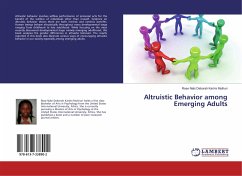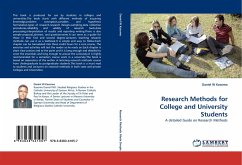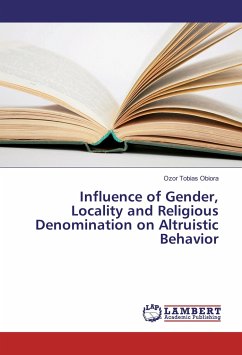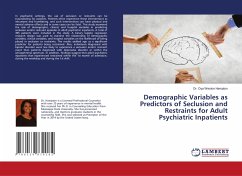Humanitarian concerns reflect larger changes in human styles of interaction. Although, there have been considerable fluctuation, in general with the passage of times, human kinds' inhumanity to itself has decreased as humanitarian concerns such as altruism has increased. Despite, this general argument among the scientific literature, there are tremendous variables that affect altruistic behavior. The author argues that classical psychological theories are inadequate in explaining and predicting altruistic behavior because of partly their oprationalization of altruism as helping for the helpees' true concern, which is narrower considering the empathy dimension of altruism; and partly methodological inadequacies considering a limited number of variables.This book provides an insight into operationally different determinant variables of altruistic behavior as a dependent measure and a number of other independent measures, residential setting, birth order, family size, maternal presence, age and gender, employing a rigorous positivistic approach of scientific investigation. It serves for policy makers and welfare institutions to adjust their policies and programs.
Bitte wählen Sie Ihr Anliegen aus.
Rechnungen
Retourenschein anfordern
Bestellstatus
Storno








